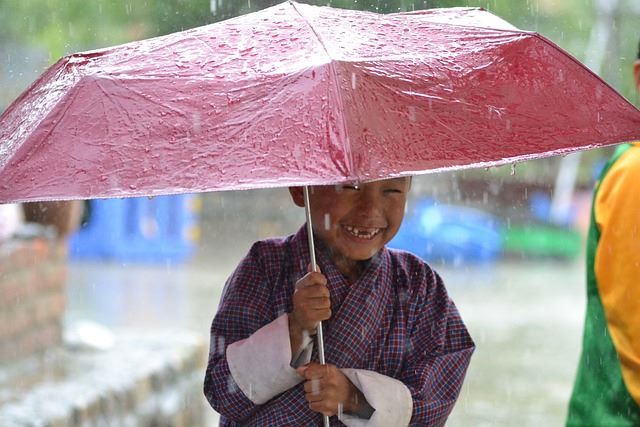Monsoon season brings much-needed relief from the scorching heat, but it also ushers in a host of waterborne diseases. The combination of stagnant water and warm temperatures creates a breeding ground for various pathogens, making it crucial to take preventive measures. Here’s a comprehensive guide on preventing waterborne diseases during the monsoon.
Understanding Waterborne Diseases
Waterborne diseases are caused by pathogenic microorganisms that are transmitted in contaminated water. These diseases can lead to severe health issues, especially in regions with poor sanitation and water management. Common waterborne diseases during the monsoon include cholera, typhoid, hepatitis A, and dysentery. (Source)
1. Ensure Clean Drinking Water
Access to clean drinking water is vital in preventing waterborne diseases. Contaminated water is a major source of infection during the monsoon. (Source)
Tip: Always drink boiled or filtered water. Use water purifiers to eliminate harmful bacteria and viruses.
Also, read: What is the Best Way to Stay Healthy? The Simple Trick to a Happy and Healthy Life!
2. Maintain Personal Hygiene
Good personal hygiene practices are essential to prevent the spread of waterborne diseases. Simple habits can significantly reduce the risk of infection.
Example: Wash your hands thoroughly with soap and water before eating and after using the restroom. Carry a hand sanitizer for times when soap and water are not available.
3. Avoid Street Food
Street food is often exposed to contamination, especially during the monsoon. Consuming street food can increase the risk of waterborne illnesses.
Tip: Stick to home-cooked meals and avoid eating raw salads or fruits from street vendors. If you must eat out, choose well-cooked, hot food.
4. Proper Sanitation
Ensuring proper sanitation and hygiene in your surroundings can prevent the breeding of disease-causing organisms. (Source)
Example: Dispose of garbage properly and avoid letting water stagnate around your home. Use disinfectants to clean frequently touched surfaces.
5. Consume Freshly Cooked Food
Eating freshly cooked food reduces the chances of ingesting contaminated food. Leftovers should be stored properly and consumed within a safe time frame. (Source)
Tip: Reheat leftovers thoroughly before consuming. Avoid keeping cooked food at room temperature for extended periods.
6. Wear Protective Clothing
During the monsoon, wearing appropriate clothing can protect you from infections. Wet and damp clothes can harbor pathogens.
Example: Wear waterproof footwear and light, breathable fabrics that dry quickly. Change out of wet clothes as soon as possible to prevent skin infections.
7. Keep Your Surroundings Clean
A clean environment minimizes the risk of waterborne diseases. Regular cleaning and proper waste disposal are crucial. (Source)
Tip: Ensure that drains are not clogged and there is no standing water in and around your home. Use insect repellents to ward off mosquitoes.
8. Use Mosquito Nets and Repellents
Mosquitoes are carriers of many waterborne diseases. Using nets and repellents can reduce the risk of mosquito-borne illnesses.
Example: Install mosquito nets over beds and windows. Apply mosquito repellent creams or use electronic repellents to keep mosquitoes at bay.
9. Stay Hydrated
Drinking adequate amounts of safe water is essential to maintain good health and flush out toxins from your body.
Tip: Keep a bottle of purified water with you and take small sips throughout the day. Avoid drinking water from unknown sources.
10. Educate Yourself and Others
Awareness is key to preventing waterborne diseases. Educate yourself and your community about the importance of clean water and hygiene practices.
Example: Conduct or attend workshops and community meetings on waterborne diseases and preventive measures. Share information with family and friends.
Also, watch web stories: 7 Common Foods with Palm Oil to Stop Eating
FAQs
Q: What are the common symptoms of waterborne diseases? A: Common symptoms include diarrhea, vomiting, stomach cramps, fever, and dehydration. If you experience any of these symptoms, seek medical attention promptly.
Q: How can I ensure the water I drink is safe? A: Boil water for at least 1 minute, use water purifiers, or drink bottled water from a trusted source. Avoid drinking tap water unless it has been properly treated.
Q: Can children and elderly individuals take additional precautions? A: Yes, children and the elderly are more susceptible to infections. Ensure they drink clean water, maintain good hygiene, and avoid high-risk foods.
Q: Are there any specific foods that help prevent waterborne diseases? A: Foods rich in probiotics, like yogurt, and those high in vitamins and minerals, like fruits and vegetables, can help boost the immune system and protect against infections.
Q: What should I do if I suspect a waterborne diseases
? A: Seek medical attention immediately. Hydrate with clean water and oral rehydration solutions to prevent dehydration. Follow the doctor’s advice and take prescribed medications.





